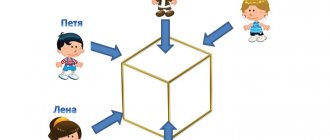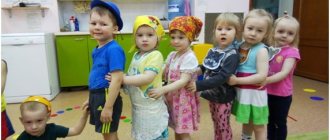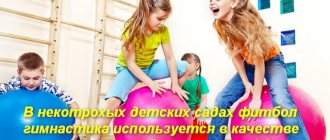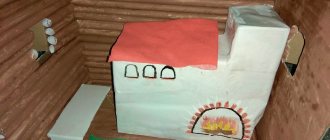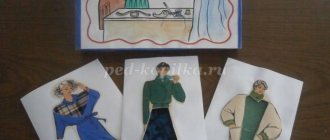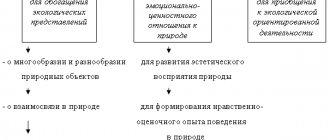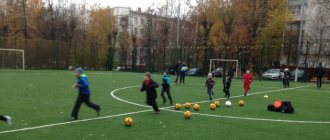Specifics of self-education of a methodologist, senior educator
The methodologist of a preschool institution is also engaged in self-improvement activities, so he must be well informed about all the latest developments in the field of preschool education. After all, for other teachers, a methodologist is a kind of expert in the field of what has been printed and published recently on preschool pedagogy. On store shelves you can now find a lot of literature that does not meet scientific requirements.
The methodologist, like all educators, must periodically improve his qualifications. Every year he works on a specific topic for which he draws up a corresponding plan. The goals, objectives of the activity, a list of specific aspects of self-improvement, and expected results are written there.
As for reporting on completed work, it is often formatted in the form of a presentation. The specialist can also prepare a report for presentation at the regional methodological association.
Assisting a preschool teacher in planning self-education work
Assisting the teacher in his self-improvement is one of the conditions for the successful operation of any preschool organization. Although the initiative should come, first of all, from the teacher himself, the assistance of the methodologist (or senior educator) also plays an important role in the issue of self-improvement. It helps solve complex issues or issues that interest a particular teacher.
The methodologist formulates a topic for self-education, identifies specific goals and objectives, organizes the teacher’s work for a certain period (sometimes for several years at once), assists in the phased implementation of the plan, and also helps evaluate the effectiveness of the activity.
Annual professional competitions are held for teachers
If it is difficult for a teacher to decide on a topic, the methodologist conducts individual conversations with him or, as an option, surveys. The methodologist constantly advises colleagues, offering the most relevant methodological sources.
The official title of the position of the methodologist is deputy head/director for educational and methodological work (senior educator/teacher). In most cases, the terms “methodologist” and “senior educator” are synonymous, but it happens that these are two separate positions in the team, and then the senior educator is responsible for part of the groups and reports to the methodologist. Until 1984, in Russia there was also the position of “educator-methodologist” with similar responsibilities.
In addition, the methodologist evaluates the activities of teachers by attending classes and other events related to the organization of preschool education (for example, walks, routine activities), and then helps to summarize the results of the work (arranges consultations for employees, makes a report at the teachers’ council, organizes open viewings).
Objectives of teacher self-education in accordance with federal state educational standards (FSES)
The essence of self-education is the ability to independently acquire new knowledge, as well as acquire skills within the framework of one’s profession.
Self-education of a preschool teacher involves solving problems such as:
- analysis of age characteristics of the group;
- identifying problems;
- introduction of the latest pedagogical developments into practical activities;
- organization of the educational process taking into account the development of technology and current requirements of society.
Forms of self-education for kindergarten teachers
Self-education of a preschool teacher is a multifaceted and diverse activity that is implemented in various forms. Let us highlight the main ones:
- work with modern regulatory documents related to various aspects of preschool education;
- studying methodological literature on your topic, including reading special magazines on the issues of educating preschool children (for example, “Preschool teacher”, “Preschool education”, “Child in kindergarten”, “Hoop”);
- mastering the latest pedagogical technologies, classical and innovative programs, getting acquainted with the best practices of other preschool institutions;
- personal self-improvement.
The preschool methodologist regularly holds pedagogical meetings (teacher councils), where all current issues related to the upbringing and education of children in this kindergarten are discussed. They need to be built in such a way that every teacher can learn something new and useful for their work. During the teachers' meeting, it is advisable not only to discuss theoretical issues, but also to conduct trainings and analyze each other's experience.
In addition, as part of teacher councils, a senior teacher can provide consultations to his colleagues on reviewing new teaching literature, familiarizing himself with regulations, and so on. Let us note that it is also possible to involve a speech therapist, a medical worker, as well as a child psychologist (if there is one in the children's institution) in such work.
Working in a kindergarten requires teamwork and creativity from teachers
Another form of self-improvement for teachers is a training seminar, which can be organized both within a kindergarten and at the level of a district methodological association. At such an event, educators train their teaching skills.
From time to time, all preschool specialists must undergo advanced training courses, which usually involve the preparation and defense of a final project. The decision to enroll in such courses and select a program that is relevant for a particular teacher is made jointly with the management. It is important that the educational institution conducting the courses has the appropriate license.
Open viewings are important for the self-education of a kindergarten teacher. They are useful both for the one conducting the lesson (the teacher demonstrates his own work) and for the audience (they borrow teaching experience, learn to analyze what they see).
Reporting documentation (workbook, folder)
The educator’s self-education is consistent with state regulations and involves maintaining certain documentation. The teacher starts a methodological folder where he collects useful articles on the chosen topic, interesting notes on educational activities, samples of fiction (if the topic is related to it), riddles, photographs from events, and so on.
A music director who has mastered additional functionality can also become a methodologist.
Be sure to develop a work plan for self-education for the year: this helps to optimally organize future activities and bring them into a coherent system. When drawing up a plan, first the topic is written, then an explanatory note, which justifies the relevance of the topic. Then all the annual work is outlined: familiarization with current methodological literature, activities with children, as well as parents. Please note that at the end of the school year (May), the teacher also reflects his experience in writing by preparing a special folder. The teacher places there photocopies of articles, consultations, descriptions of experiments, notes from classes with preschoolers, and so on.
Let us note that self-education should not be perceived only as filling out notebooks, plans, preparing consultations, designing stands, etc. First of all, this is the stimulation of professional growth, as well as personal development of the teacher.
In addition to the annual plan, there is also a long-term plan for education, which outlines work on a specific topic for several years in advance.
The teacher’s responsibilities also include regularly filling out a notebook for his self-education. Notes are made there about the events carried out:
- with students (for example, direct educational activities);
- with parents (preparing leaflets, stands, preparing consultations);
- with teachers (report at the teachers' meeting, etc.);
- about other components of the self-education process (for example, the teacher read a certain book on the topic, purchased a visual aid, attended an event).
Note that such a notebook is usually filled out in any form, for example, with a table.
Table: “Development of coherent speech of preschoolers through play in the context of the introduction and implementation of the Federal State Educational Standard” (fragment of the annual plan)
| Term | Form of work, content | Report form | Perspective |
| 2016–2017 academic year | |||
| September | Selection and study of literature on the topic; didactic games and exercises; plot paintings. | Memos for parents on teaching coherent speech | Compiling a bibliography |
| October | Didactic games aimed at developing children's ideas about people of different professions. | Didactic games for speech development “Cooking soup” | Activation and enrichment of children's vocabulary. |
| November - April | Attending open classes | Compiling an analysis of classes attended | Studying the experience of preschool teachers. Using the accumulated experience in practice when working with children. |
| December | Work on composing (inventing) riddles | Consultation for parents: “Using riddles as a means of developing expressive speech” (moving folder). | Show the role of riddles in the formation of expressive speech. Teach children to solve riddles using diagrams. Develop children's monologue speech. Develop imagination. |
| January February | Theater activities. Staging of fairy tales: “The Cat and the Fox”, “Teremok”, etc. (using finger and table theater). | Practical screening (theater week) | Development of creative independence, aesthetic taste in conveying an image; development of children's speech and emotional orientation. Unlocking children's creative abilities. |
| March | Parent meeting “How games develop a child’s speech” | Screening of the presentation “Speech development of children 5–6 years old” | Help parents create a speech environment for constant communication with their child. |
| April May | Learning counting rhymes and riddles. Finger games | Presentation | Improve speech hearing, consolidate the skills of clear, correct, expressive speech. Differentiation of sounds, words, sentences. Practice tempo, voice strength, diction. |
Author of the development: teacher of general developmental kindergarten No. 8 “Sun” S.V. Petrova (Menzelinsky district of the Republic of Tatarstan).
Samples of filling out the plan and other reporting according to the Federal State Educational Standard
Some documents and reports are prepared by the teacher in free form, but there are still some requirements for the structure and content of the documentation.
Annual self-education plan for a preschool teacher according to Federal State Educational Standards
Proper execution of the annual plan also helps with the preparation of final reporting.
Title page design
The title page of the document must contain the following information:
- Full name of the municipal institution (municipal preschool educational institution - general developmental kindergarten No....).
- Name of the document (teacher self-education plan).
- Information about the teacher: Full name teacher
- Work experience.
- Qualification category and date of its assignment.
Second page design
Subject: "…".
Target: "…".
Tasks (approximate list):
- increase your own level of knowledge by... (studying the necessary literature, attending meetings of teachers, self-education...);
- develop a long-term plan for working with children;
- prepare diagnostics for the beginning and end of the school year;
- organize the work of the circle, create a curriculum;
- create a corner in the group...;
- prepare (conduct) a consultation for teachers on the topic “...”, a speech at the pedagogical council No.... on the topic “...”,
- prepare (take part) in the seminar...;
- prepare material (conduct) a master class for teachers on the topic: “...”.
Table: work forms by month
| Month | Forms of work | |||
| With kids | Teachers | Self-education | Parents | |
| September | Diagnostics of children's knowledge, skills, abilities |
| Consultation for parents: "..." | |
| October | Classes, conversations in accordance with the work plan of the circle | |||
| November | Design of the transfer folder. Subject: "…" | |||
| December | Create a corner in the group... | Design of the transfer folder. Subject: "…" | ||
| January | ||||
| February | Prepare (conduct) a master class for teachers on the topic: “...” | |||
| March | ||||
| April | Entertainment "..." | |||
| May | Diagnostics | Writing a report on the work done during the academic year and presenting it at the teachers' meeting. | Speech at a parent meeting with a report on the work done during the school year | |
| June | Exhibition of children's works | Organize the work of the circle for the next academic year, create a curriculum | Consultation for parents: "..." | |
| July | ||||
| August | ||||
Topic Output (Practical Application Presentation)
The teacher can present the application of acquired knowledge in practice in the following ways:
- conduct an open lesson (group viewing...);
- prepare (participate, conduct) a seminar;
- conduct a master class for teachers on this topic;
- create a moving folder;
- compile a collection of consultations for parents;
- draw up a report on the work done for the academic year.
In each case, it is necessary to indicate the topic used, as well as the date (month) of the presentation.
Registration of the list of references
At the end of the plan, you need to indicate literary sources according to the standard bibliographic principle: author of the manual, title, year of publication, publisher - for each item in the list.
How to design a self-education notebook
This is another companion of a preschool educational institution employee in teaching work.
Title page design
The title page of the document must contain the following information:
- Full name of the municipal institution (municipal preschool educational institution - general developmental kindergarten No....)
- Name of the document (Notebook...)
- Information about the teacher: Full name teacher
- Work experience.
- Qualification category and date of its assignment.
Internal pages
Each topic must be listed separately. The year and group must also be indicated. For each topic, a special plate is filled out.
Table: work plan by month (form)
| Forms of work | |||
| With kids | With teachers | Self-education | With parents |
| September | |||
Long-term teacher self-education plan
The plan must contain the following information:
- Full name of the teacher.
- Group.
- Work experience.
Table: long-term self-education plan (form)
| Academic year | Self-education topic | Report form and deadline |
You also need to indicate the date the plan was completed.
